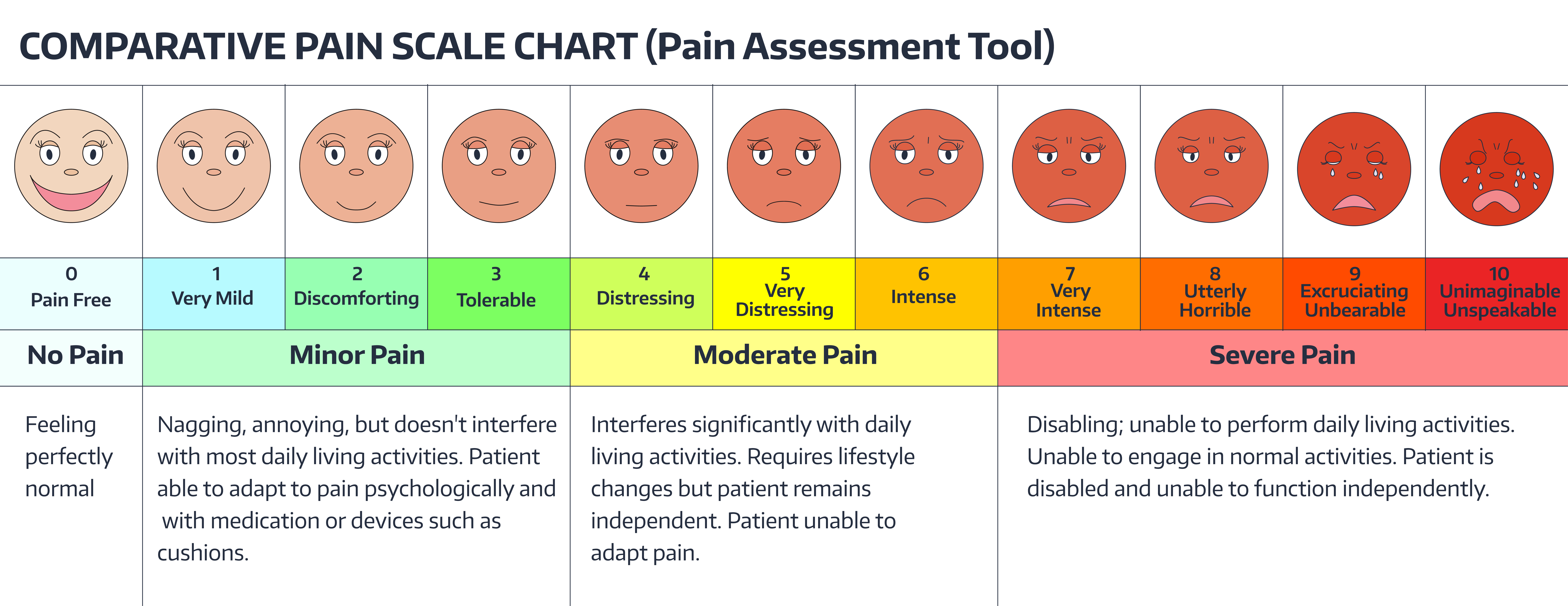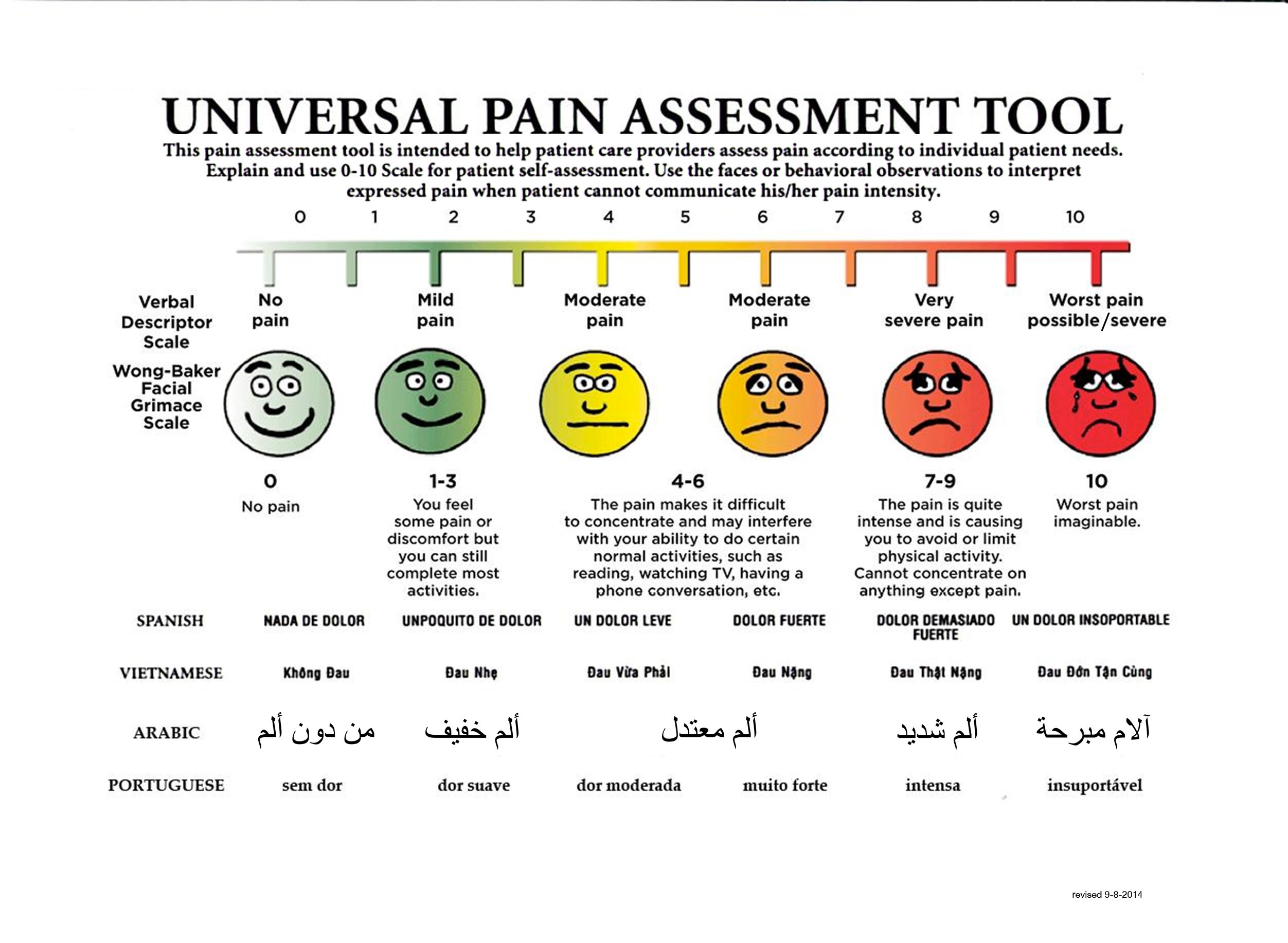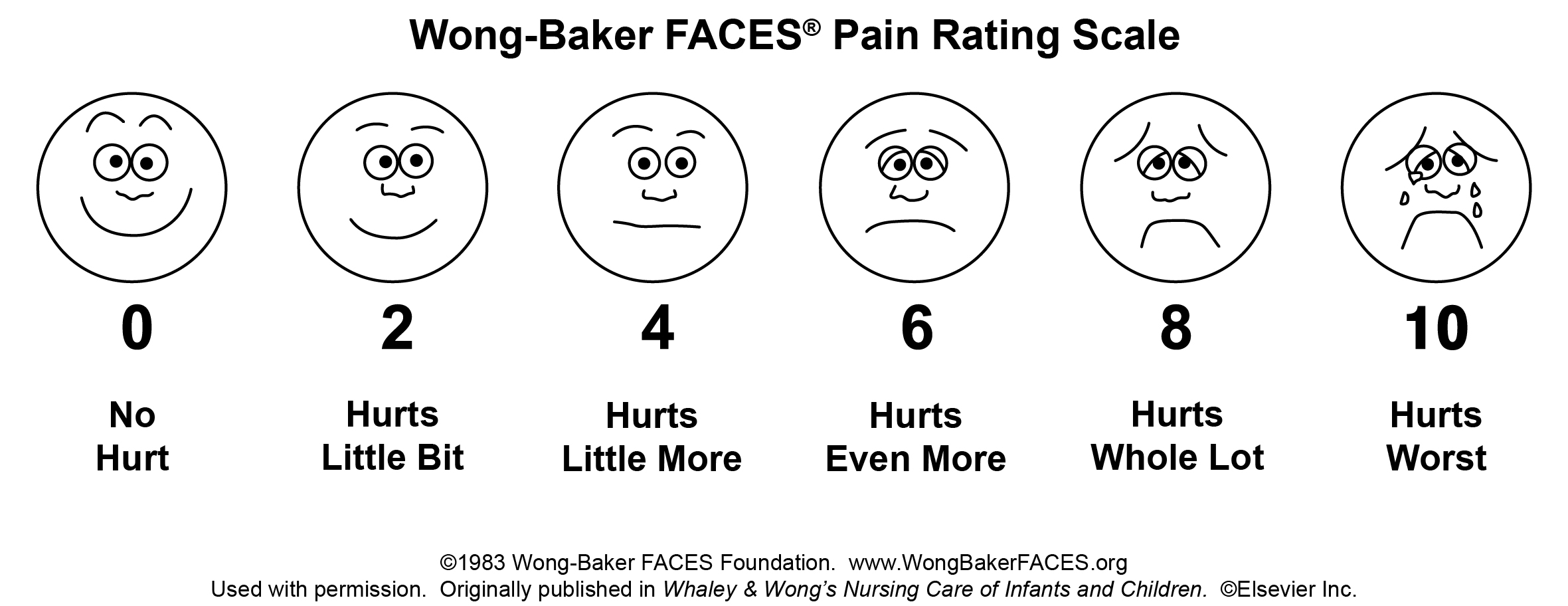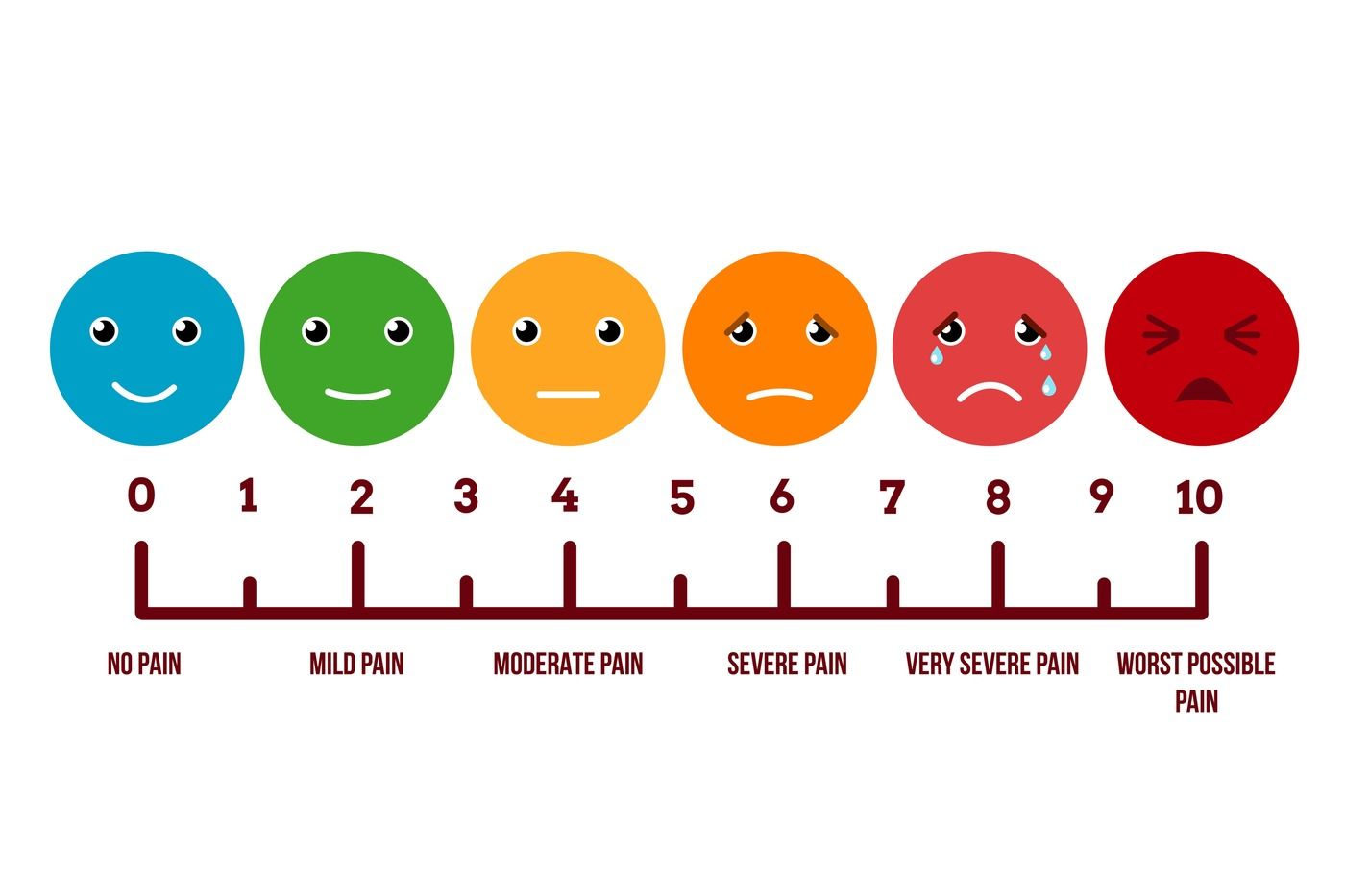Faces Pain Scale Printable
Faces Pain Scale Printable - Face 2 hurts just a little bit. Web explain to the person that each face is for a person who has no pain (hurt) or some, or a lot of pain. Web choose the face that best describes how he is feeling. Nonexpressive legs normal position or relaxed; Video now availablecurated by expertsintegrated in adobe apps Face 2 hurts just a little bit. Face 0 doesn’t hurt at all. Poster, 6th international symposium on paediatric pain, special. Face 0 doesn’t hurt at all. Infants should be observed for one minute in order to fully assess each indicator. Web my pain rating scale* explain to your child that each face is for a person who has no hurt (pain) or some or a lot of hurt (pain). The nurse, nursing assistant or child life specialist can help you choose the best tools and show you how to use them. Web explain to the person that each face is. Find out the difference between the original and revised versions,. Usual tone & motion to limbs uneasy, restless, tense;. Face 4 hurts a little more. Web choose the face that best describes how he is feeling. Access the scale, order products, listen to podcasts, and read a book. Children match their level of pain. Web learn about the faces scale, a tool for children and adults to communicate their pain level. Face 4 hurts a little. Nonexpressive legs normal position or relaxed; Poster, 6th international symposium on paediatric pain, special. Point to each face using the. Find out the difference between the original and revised versions,. The emotional faces range from smiling to grimacing. Rating scale is recommended for persons age 3 years and older. Web the faces pain scale shows reliability and consistency when pain ratings are assigned by children, especially as they are associated with related pain experiences. Web my pain rating scale* explain to your child that each face is for a person who has no hurt (pain) or some or a lot of hurt (pain). Translation and adaptation for use in many cultures. Video now availablecurated by expertsintegrated in adobe apps Face 0 doesn’t hurt at all. Find out the difference between the original and revised. Adults and children (> 3 years old) in all patient care settings. Web learn about the faces scale, a tool for children and adults to communicate their pain level. Face 2 hurts just a little bit. The emotional faces range from smiling to grimacing. Web explain to the person that each face is for a person who has no pain. Face 0 doesn’t hurt at all. Face 0 is very happy. Point to each face and say the words under the. Web explain to the person that each face is for a person who has no pain (hurt) or some, or a lot of pain. Development, initial validation and preliminary investigation for ratio scale. Poster, 6th international symposium on paediatric pain, special. Face 4 hurts a little. Face 0 is very happy. Explain to the person that each face is for a person who feels happy because he has no pain (no hurt) or sad because he has some or a lot. It shows six faces with different levels of pain, from 0 to. Infants should be observed for one minute in order to fully assess each indicator. Web my pain rating scale* explain to your child that each face is for a person who has no hurt (pain) or some or a lot of hurt (pain). Web explain to the person that each face represents a person who has no pain (hurt), or. The face on the left shows no pain. Rating scale is recommended for persons age 3 years and older. The emotional faces range from smiling to grimacing. Explain to the person that each face is for a person who feels happy because he has no pain (no hurt) or sad because he has some or a lot. Video now availablecurated. Translation and adaptation for use in many cultures. Video now availablecurated by expertsintegrated in adobe apps Face 0 doesn’t hurt at all. Web explain to the person that each face is for a person who feels happy because he has no pain (no hurt) or sad because he has some or a lot of pain. Point to each face using the. Web learn about the faces scale, a tool for children and adults to communicate their pain level. Web my pain rating scale* explain to your child that each face is for a person who has no hurt (pain) or some or a lot of hurt (pain). Access the scale, order products, listen to podcasts, and read a book. Web choose the face that best describes how he is feeling. Point to each face and say the words under the. Nonexpressive legs normal position or relaxed; Web see the nips scale for the description of infant behavior in each indicator group. Face 0 doesn’t hurt at all. Poster, 6th international symposium on paediatric pain, special. Usual tone & motion to limbs uneasy, restless, tense;. Face 4 hurts a little more.FACES PAIN SCALE.pdf Breathing Apnea

Faces pain rating scale. Comparative pain scale chart. Pain assessment

Printable Pain Scale Faces

Printable Faces Pain Scale Chart

Printable Faces Pain Scale Chart

Printable Pain Scale Faces

Printable Faces Pain Scale

Printable Faces Pain Scale Chart

Printable pain scale faces 1 10 delightvsa

110 Pain Chart Faces
Development, Initial Validation And Preliminary Investigation For Ratio Scale.
Face 0 Is Very Happy.
Web Explain To The Person That Each Face Represents A Person Who Has No Pain (Hurt), Or Some, Or A Lot Of Pain.
Face 2 Hurts Just A Little Bit.
Related Post:
